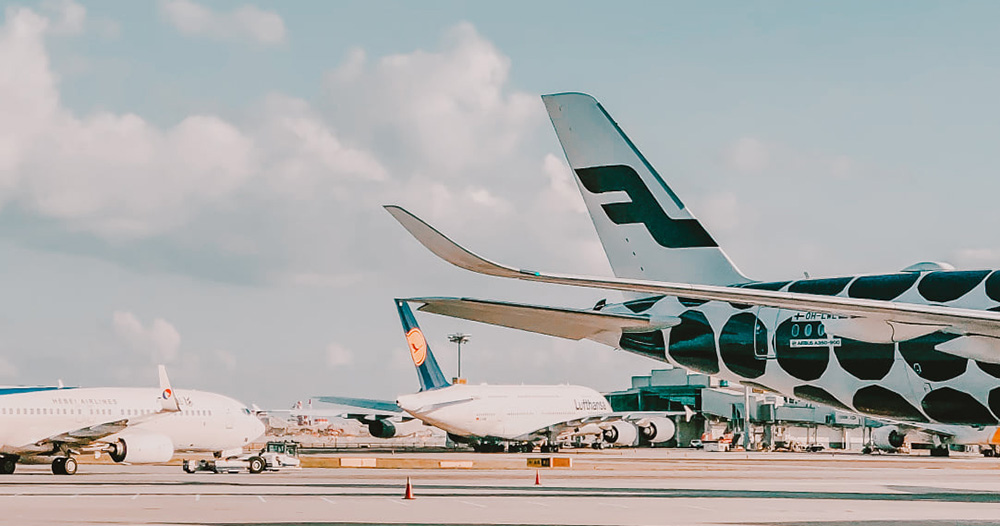Follow us on Telegram for the latest updates: https://t.me/mothershipsg
[Editors note, Sep. 21: 11:40pm: An earlier version of this article reported that Singapore regulators had threatened retaliation against the EU for its update to its airport slot policy. This was originally reported by Reuters. CAAS had released a statement in response to the article, clarifying that its reciprocity requirements is not a response to the EU’s latest announcement. The headline and details in the article have been edited and updated to include this information.]
The Civil Aviation Authority of Singapore (CAAS) has clarified that its reciprocity requirement is not a response to the European Union’s latest announcement of the current 50 per cent usage rules.
In an article published on Sep. 17, Reuters claimed that Singapore and Hong Kong regulators had allegedly threatened a tit-for-tat retaliation against the European Union (EU) for announcing plans to force airlines to use 50 per cent of their take-off and landing slots at EU airports or lose them to other carriers.
CAAS had refuted this, saying that it has granted slot waivers to airlines operating at Changi Airport since Mar. 29, 2020.
It added:
"From the onset, we have imposed a reciprocity requirement for the waivers to assure overseas authorities that their carriers operating to Changi Airport will also receive waivers as long as there is fair treatment. The policy is applied consistently to all carriers operating at Changi Airport.
The requirement has been widely made known to the aviation community through the
International Air Transport Association (IATA) and the airport slot coordinator."
Airlines operating at Changi Airport have also not reported difficulties in securing their slots Singapore.
Flights must be operated at EU airports, regardless of demand, to keep the slot
Such a move could force airlines operating in Europe to do so at a loss, according to Simple Flying, as airlines would be forced to fly empty planes at a time when there’s little demand due to Covid-19 restrictions.
Asian airlines have highlighted that they will be unfairly penalised by the EU's new rules as it will take a much longer time for their long-haul networks to recover, Reuters further reported, while a recovery in Europe's mostly short-haul flight market has already been reported.
In addition, Taiwan's China Airlines, Korean Air Lines, and Hong Kong's Cathay Pacific have also expressed concerns over the EU's rules.
Singapore Airlines, on the other hand, had declined to comment.
The rule could also lead to "environmentally wasteful and unnecessary flights", and further weaken the financial stability and recovery of the global aviation industry and network, International Air Transport Association (IATA) said in a press release.
What is an airport slot?
According to the IATA, an airport slot is a pre-assigned landing and take-off slot for an airline, so as to avoid chaos at airports where infrastructure cannot match demand, and to ensure that an airport's capacity is allocated to different airlines in a fair, neutral and transparent manner.
Prior to the outbreak of the Covid-19 pandemic, airlines were subjected to the 80/20 use-it-or-lose-it rule in which they must make use of their slot at an airport at least 80 per cent of the time or lose the rights to having one.
This is because a slot that is not utilised by an airline can be allocated to another carrier. Such a rule also offers airlines the certainty of allowing consumers to choose their flights up to almost one year in advance.
Asian regulators have threatened to reciprocate the rules on European airlines
As such, authorities at Asian airports have signalled that they are ready to slap similar conditions on European airlines flying into Asian cities, Reuters further reported, with authorities in Singapore and Hong Kong reportedly having confirmed that reciprocity provisions are in place.
The director of air transport at the Civil Aviation Authority of Singapore (CAAS), Daniel Ng, was also quoted as saying that Singapore has included provisions for ensuring fair treatment, while an unnamed industry source was further quoted as adding that Singapore, Hong Kong and South Korea are among the countries taking a harder line on European carriers.
Reuters also quoted a former Australian aviation negotiator, Peter Harbison, who has since described such moves as the "germ" of a trade war.
Why did the EU make such a move?
The move had been announced by the EU earlier this year in July, with the European Commission (EC) stating that it expected air traffic to return to 70 per cent of pre-Covid-19 levels in 2019, in light of factors such as progress in vaccination rates and the rollout of a Covid-19 certificate for facilitating passenger travel.
The EU had first suspended the previous 80/20 rule in March 2020 for the region as a result of the global collapse in air travel demand due to the spread of Covid-19.
The Airports Council International (ACI) Europe, a trade body representing airports across Europe, also welcomed the decision in July as "pragmatic and proportionate", adding that it expected the 80/20 rule to eventually return by the winter of 2022.
However, on Sep. 17, a new press release by ACI Europe stated that travel was plateauing and even decreasing, following the summer period, with a lack of business travellers taking over from summer holiday travellers.
The director-general of ACI Europe, Olivier Jankovec, said that travel remained at 66 per cent below pre-pandemic levels, and that the rise in passenger traffic over the summer holidays could not be called a recovery, as passenger traffic had since stopped improving.
Follow and listen to our podcast here
Top photo via Changi Airport
If you like what you read, follow us on Facebook, Instagram, Twitter and Telegram to get the latest updates.
